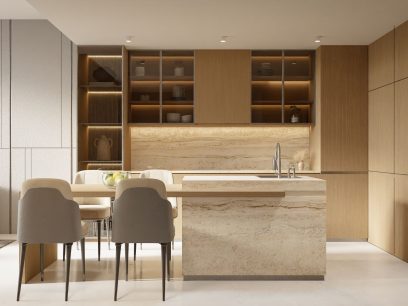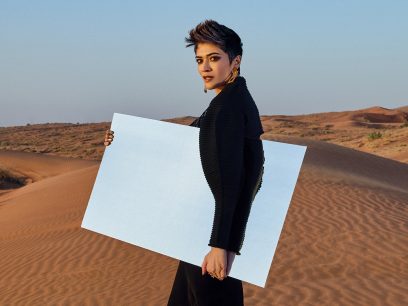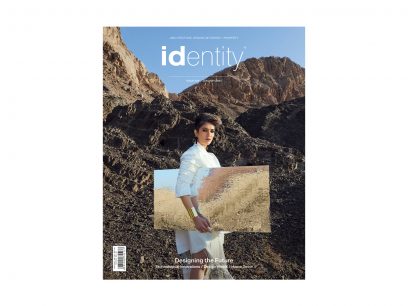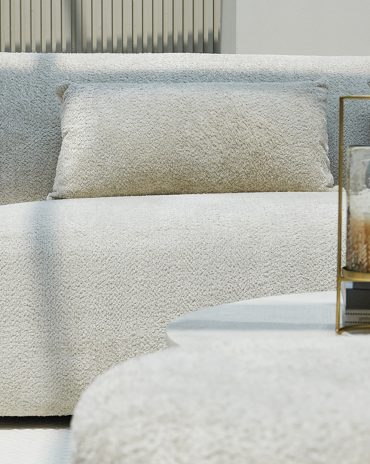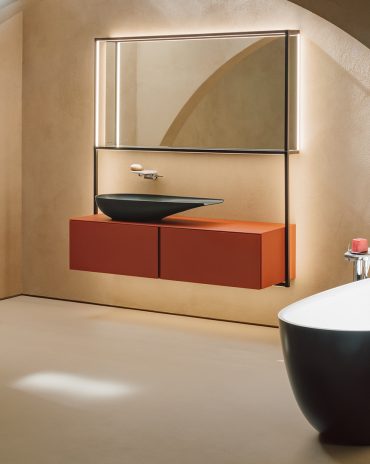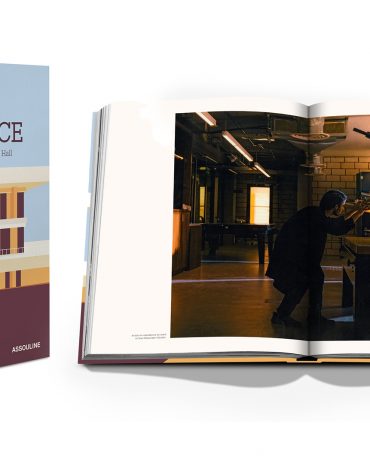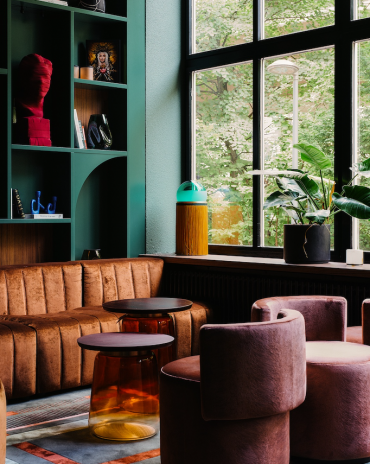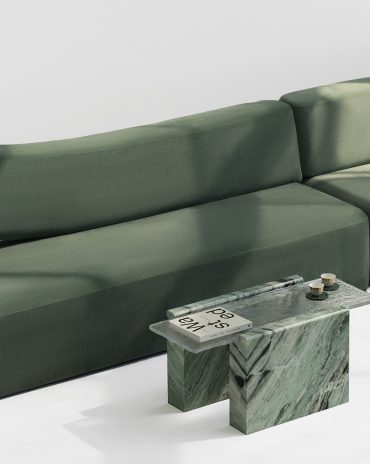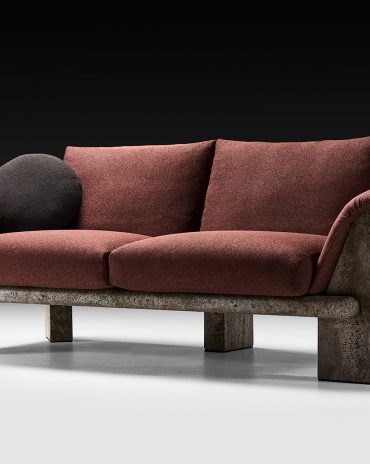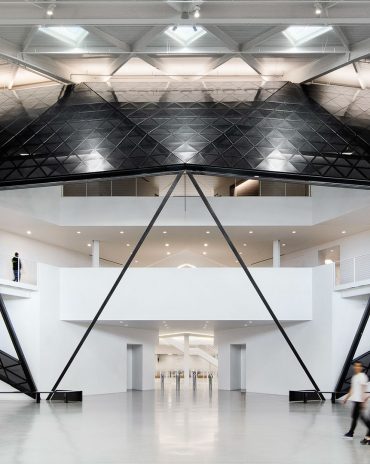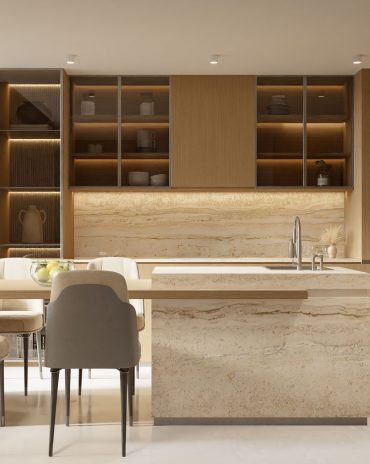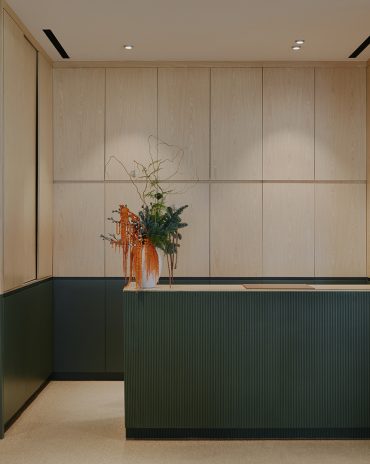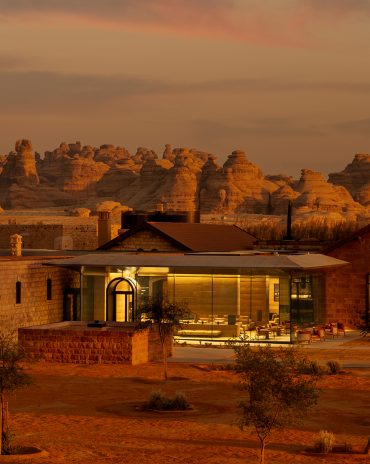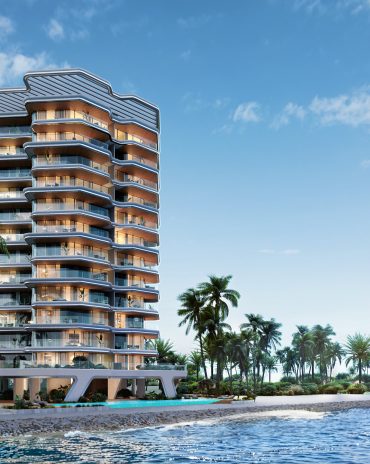Copyright © 2025 Motivate Media Group. All rights reserved.
A beach home on a remote island in The Philippines advocates for slow living and local craftsmanship
Designer Vianca Soleil Roquero is transforming this home into a mini
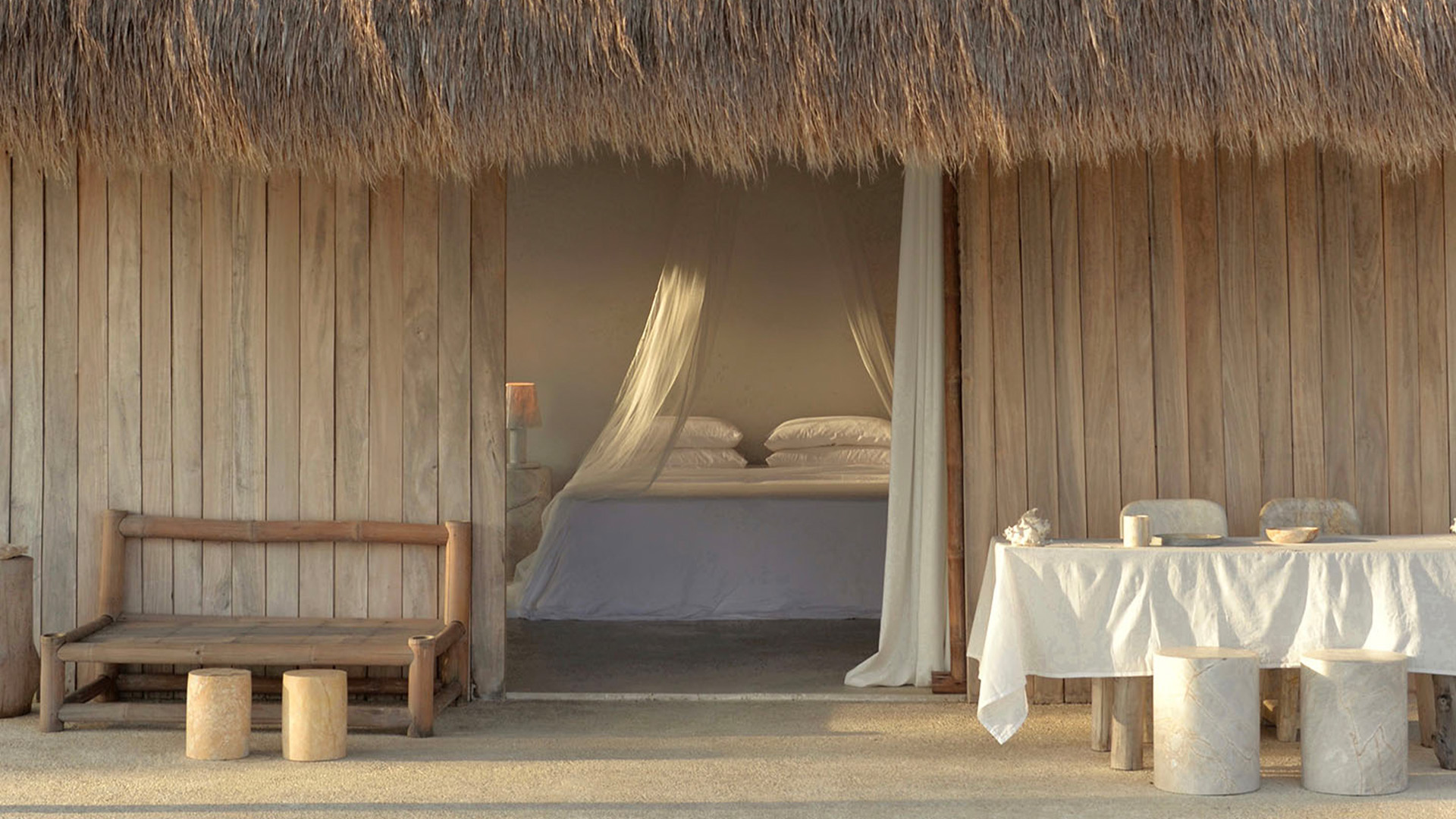
Set on the small island of Puro (meaning ‘pure’) in the Romblon province of The Philippines is Unna, the family home of interior designer Vianca Soleil Roquero, who is in the process of transforming this tranquil beach home into a small resort. Her goal is to support the local community while sharing a slower way of living with others.
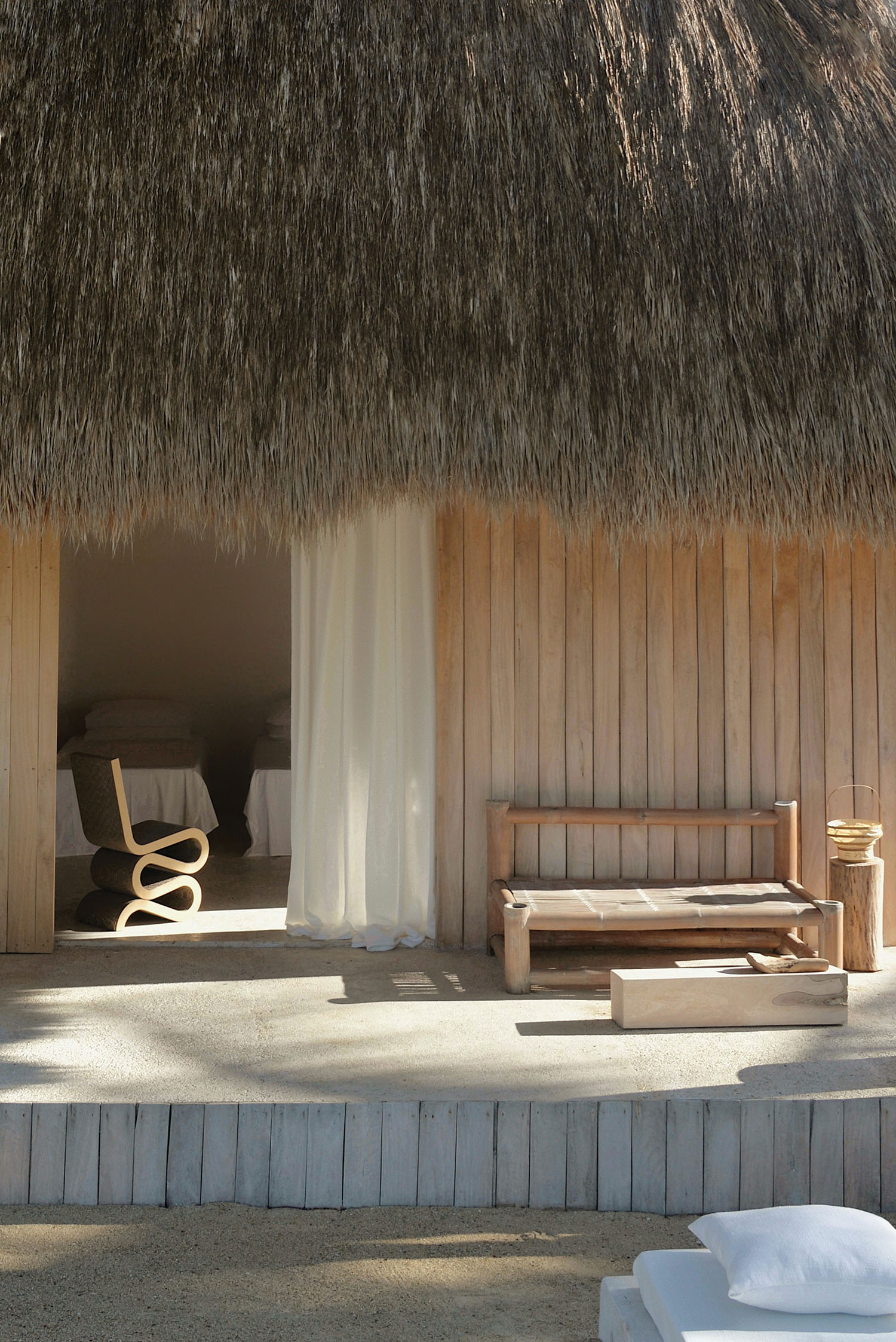
“The island has no roads nor establishments and is inhabited by less than a hundred families,” Roquero shares. “Our property is located in a cove facing south, between the ocean and a mangrove forest. What I love most about the property is its wide beachfront, of about 260 metres. The island lives up to its name because the nature here is untouched and the beaches are always empty. It reminds me of old Philippines.”
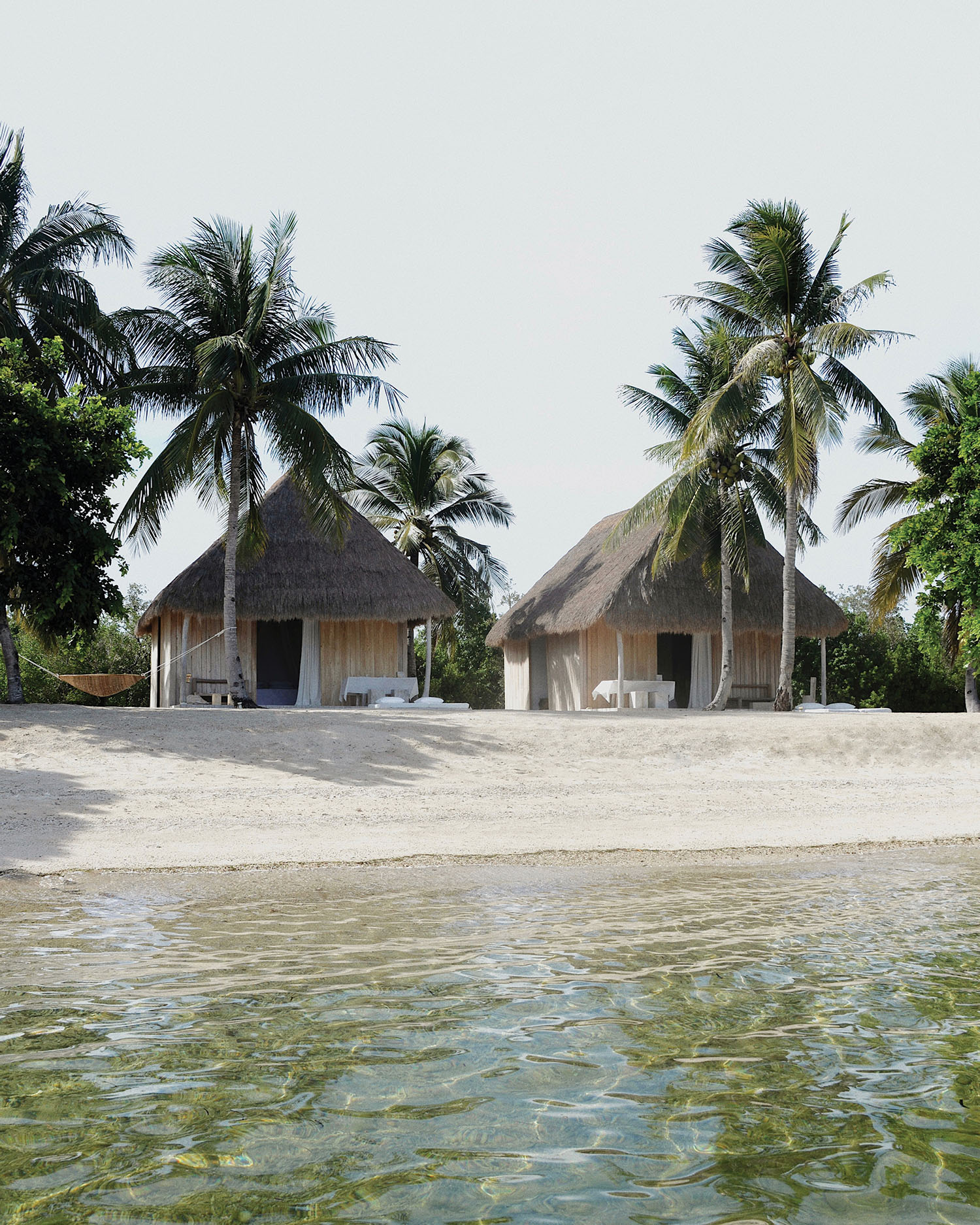
Roquero – who also works in photography and creative direction – grew up in the country’s capital of Manila, where she studied interior design. Shortly after graduation, she went on to work for a furniture brand in Dubai for four years, after which she took time to travel and became drawn to exploring rural towns.
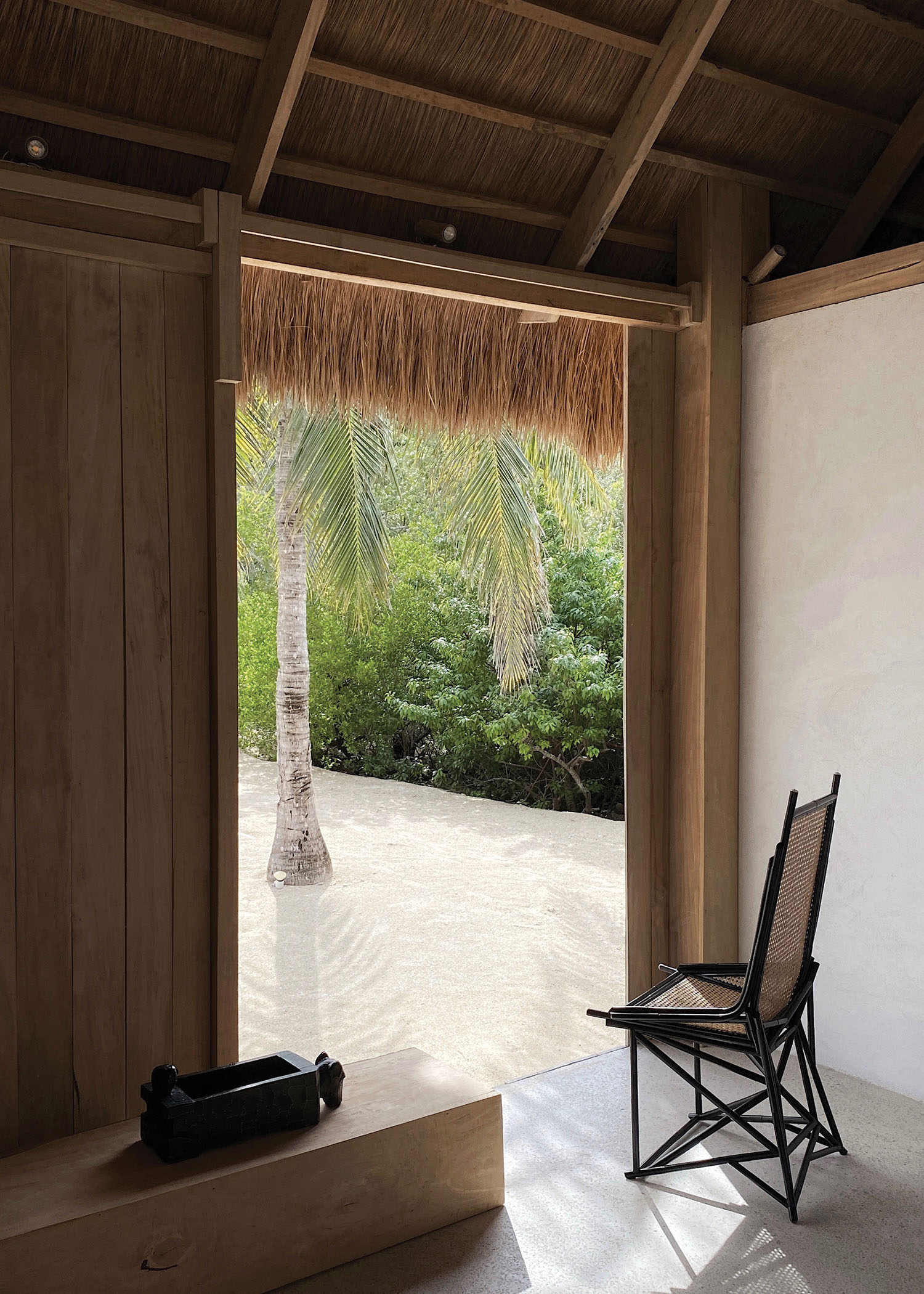
“I felt such a special connection to its humble way of life,” she remembers. “Their beliefs and how [they’re] translated to how they build their homes, how they craft everyday things. This experience was so inspirational to me and became my push to start my dream project, Unna.”
What started as a vacation home for her family turned into a small beach resort as the ideas kept on evolving. “Through this project, we will be able to provide livelihood to the island residents and, hopefully, bring out the potential of the community through craftsmanship,” Roquero says.
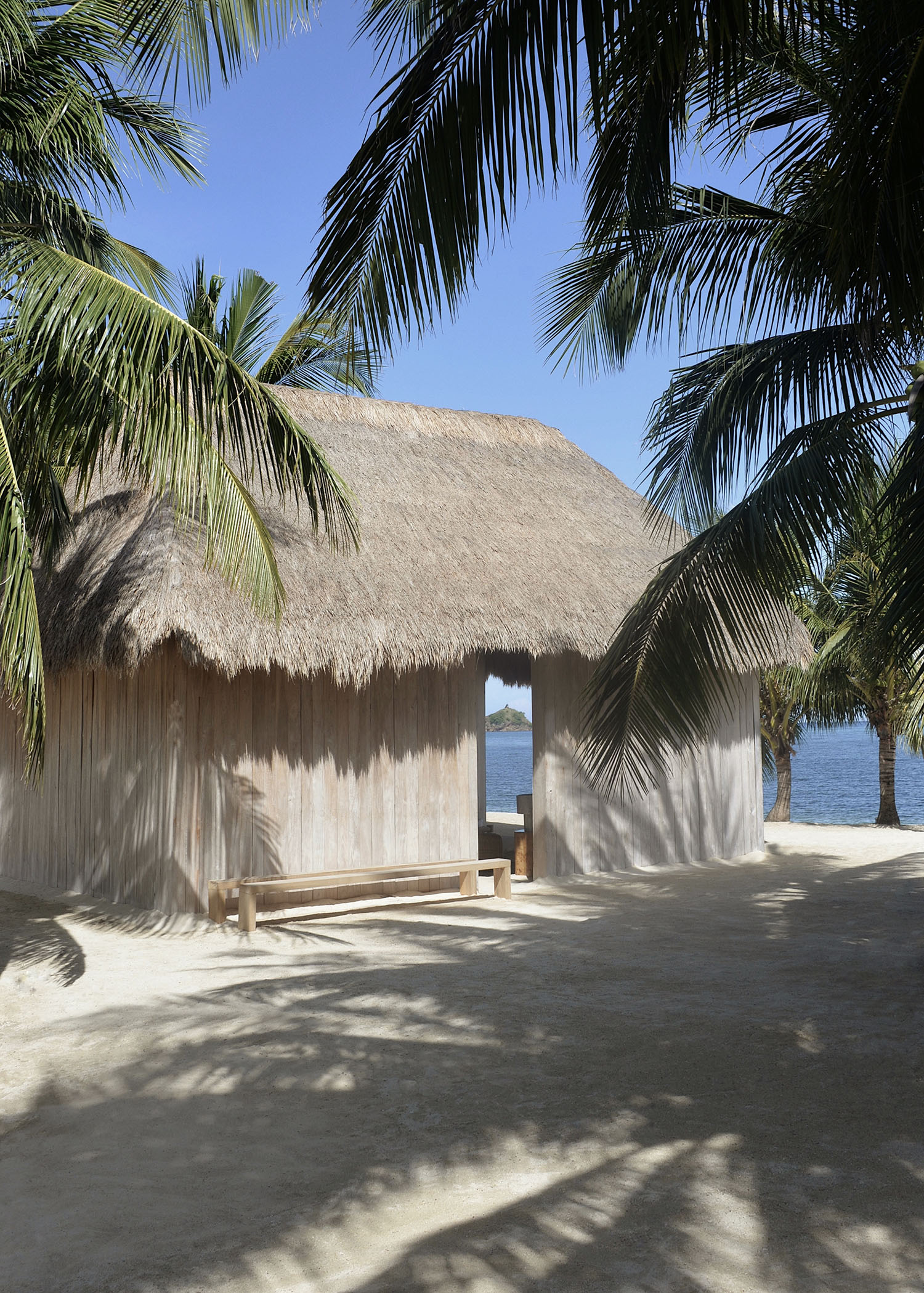
Unna comprises a series of huts with thatched roofs, including one for living and dining, as well as a kitchen hut and bedrooms, which are all simple in shape: a square with a triangular roof, as if sketched by a child. The kitchen hut is inspired by traditional Filipino outdoor kitchens – shaped like a box and made entirely from coconut palm and timber, sourced on the property. Other materials such as gmelina wood and cogon grass are sourced from within the province. With Romblon being rich in marble deposits, the veranda flooring was made from white cement and coral pieces, while the interior consists of marble chips found on the other side of the island. This material was also used in varying colours for the furniture and accessories.
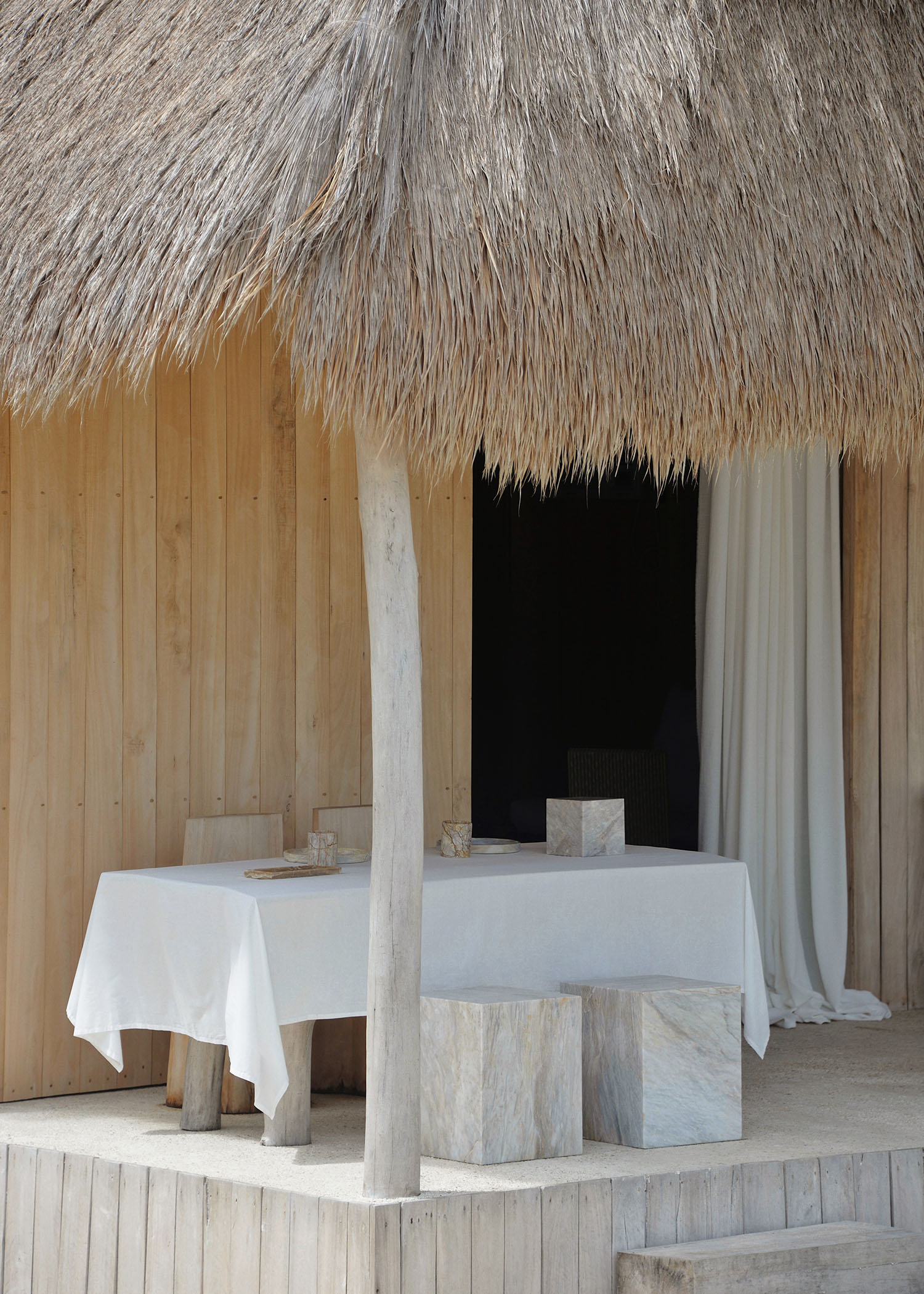
“I challenged myself to somehow unlearn the approach I was used to back in the city, from being too technical and by-the-book to [taking] a more nonchalant and intuitive approach,” Roquero shares. “My idea was to go back to the basics by building like an island local, to embrace beauty in restraint but also leave some room for playfulness.”
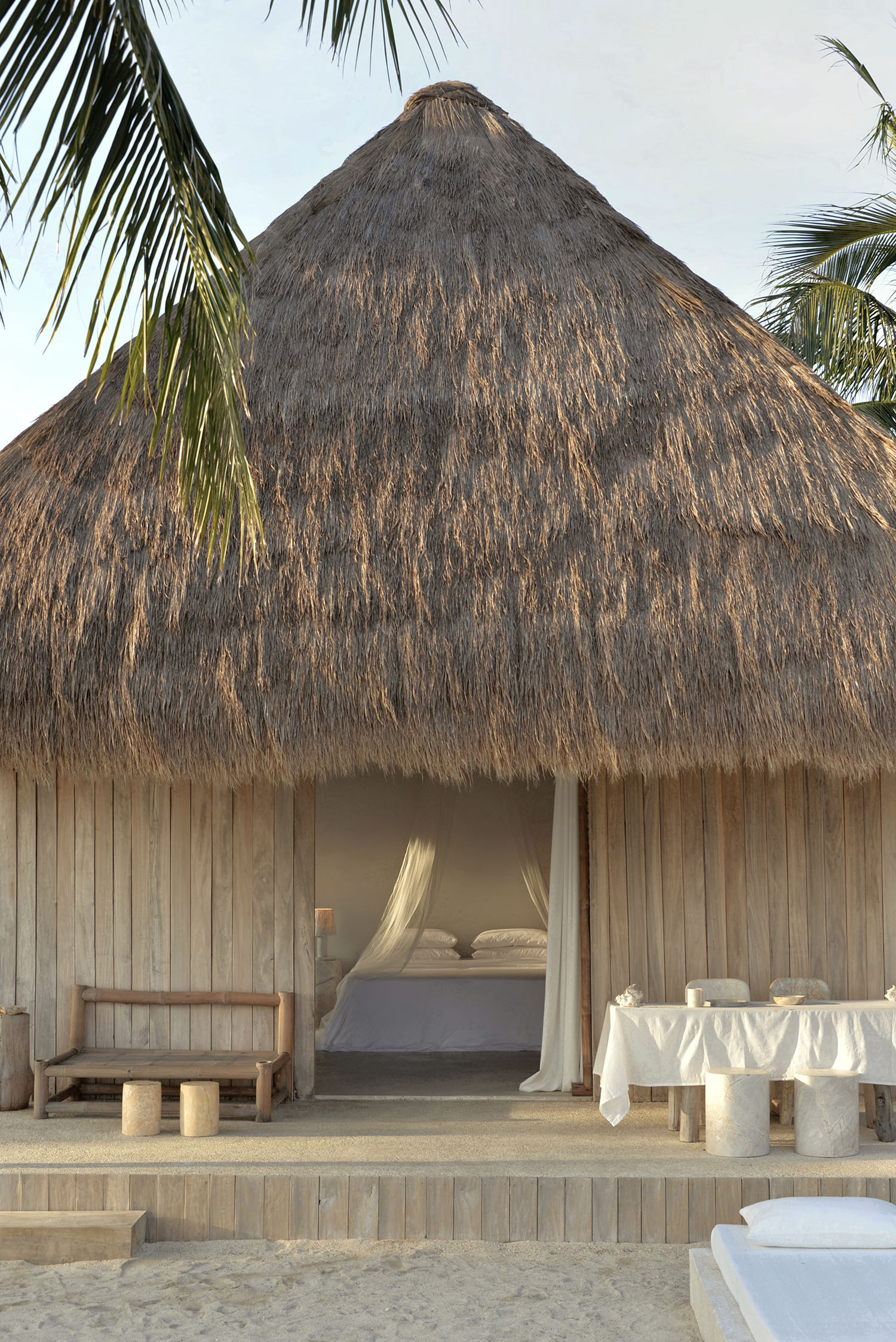
By building a humble structure made of natural materials, the structure is minimally disruptive to its surroundings, which brings the focus back onto the landscape and encourages one to reconnect to the natural world. The huts are laid out amongst the palm trees, providing shade and a beautiful play of light and shadow throughout the day. The openings are purposefully wide, to create a feeling of openness and to maximise the views of the ocean.

Processed with VSCO with m5 preset
In the living and dining hut, the sand extends to the inside, blurring the distinction between interior and exterior. When the tide is high, the sofa sits just a couple of metres from the water. Surfaces are left unfinished to showcase beauty in imperfection, while the floors are a similar shade to the beach sand and have been left unpolished to create a sense of harmony with the surroundings.

“I take my time filling the corners, making use of what nature provides – such as a pair of washed-up logs, which I turned into a bench and accent chairs. Other examples are a side table and pedestal [created] from a tree on the property, uprooted during a storm. We also have antique pieces, mostly from the tribes of the Cordillera mountains,” says the designer.
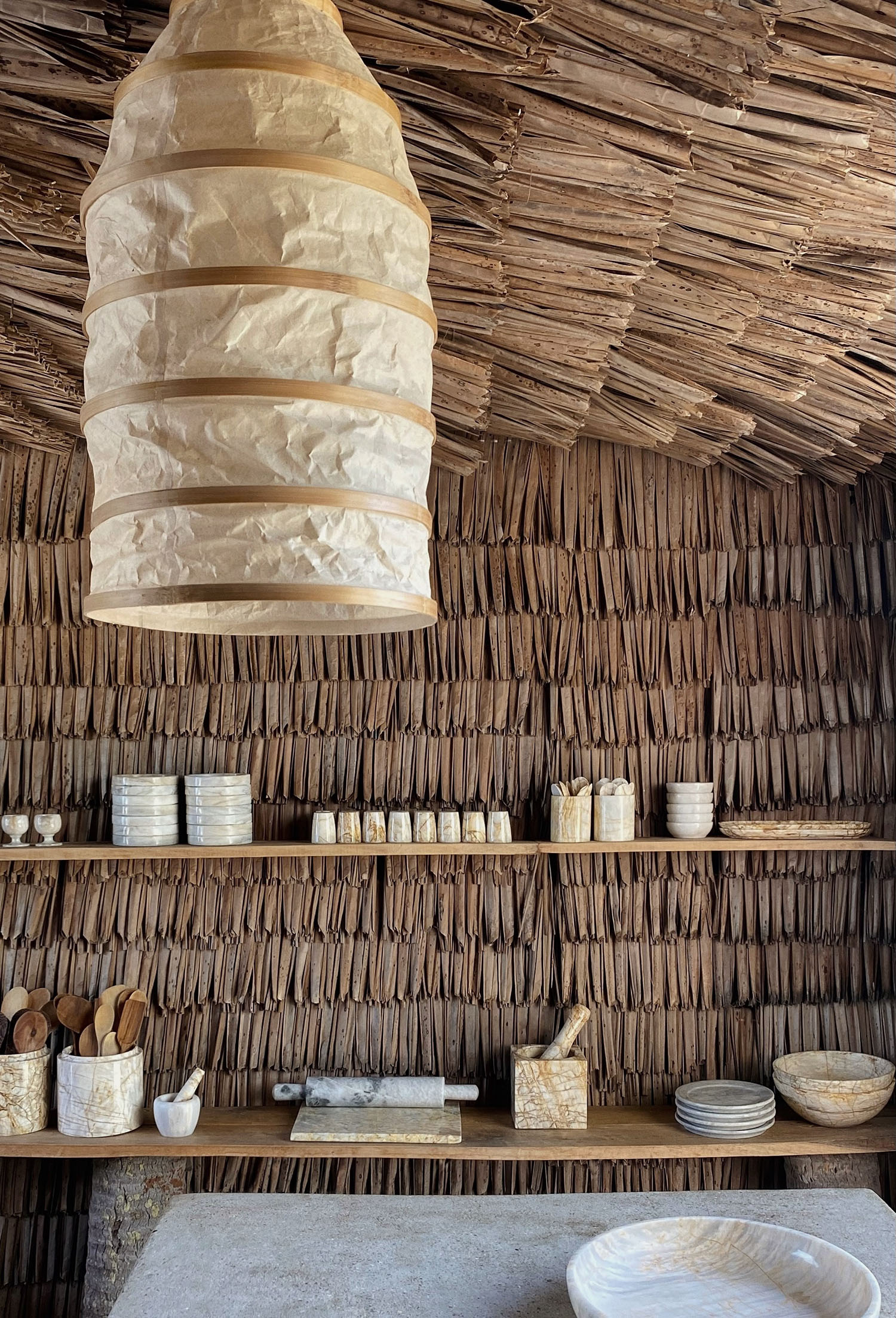
“I appreciate a minimal look – to the point of it almost looking ‘undesigned’. Sometimes a streak of sunlight is enough to create poetry in a space. I’d say the style is a modern take on Philippine vernacular architecture – a nod to simple and honest craftsmanship.”
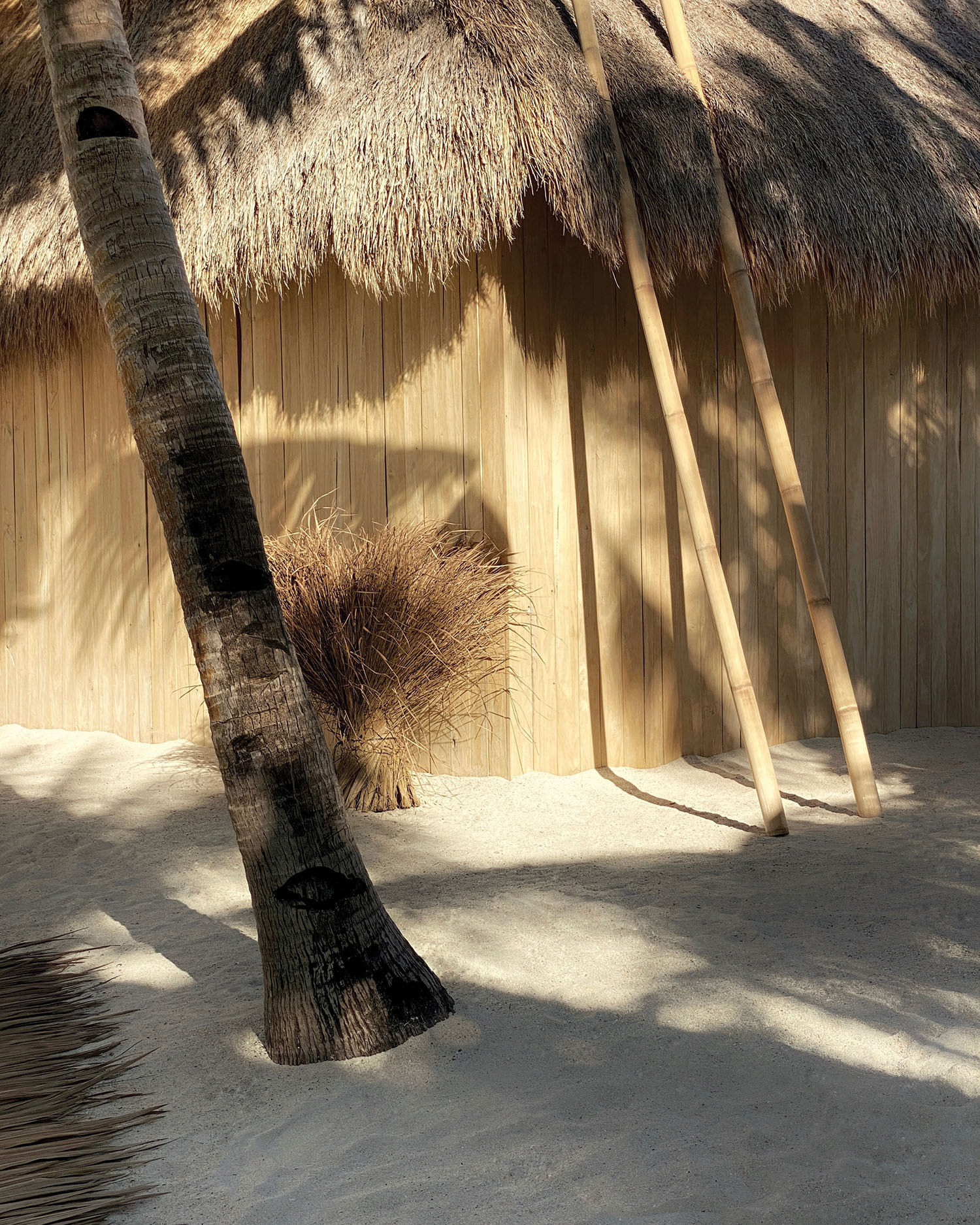
Most of the furniture pieces are made on the property, with the exception of some of Roquero’s favourite pieces, such as the Frank Gehry Wiggle chairs and the Noguchi lamp. “I wanted to stick to the traditional way we craft bamboo furniture, then strip it of any ornaments and keep the shape really basic. I also designed some marble pieces which are produced on the neighbouring island. We also have antique Batibot chairs; this is an iconic Filipino design, it reminds me a lot of my childhood,” she adds.

Unna is still being built, with current works including the storage hut and a library/studio.
Roquero’s team is composed of island locals who are her neighbours, and she bases her designs on their skills.
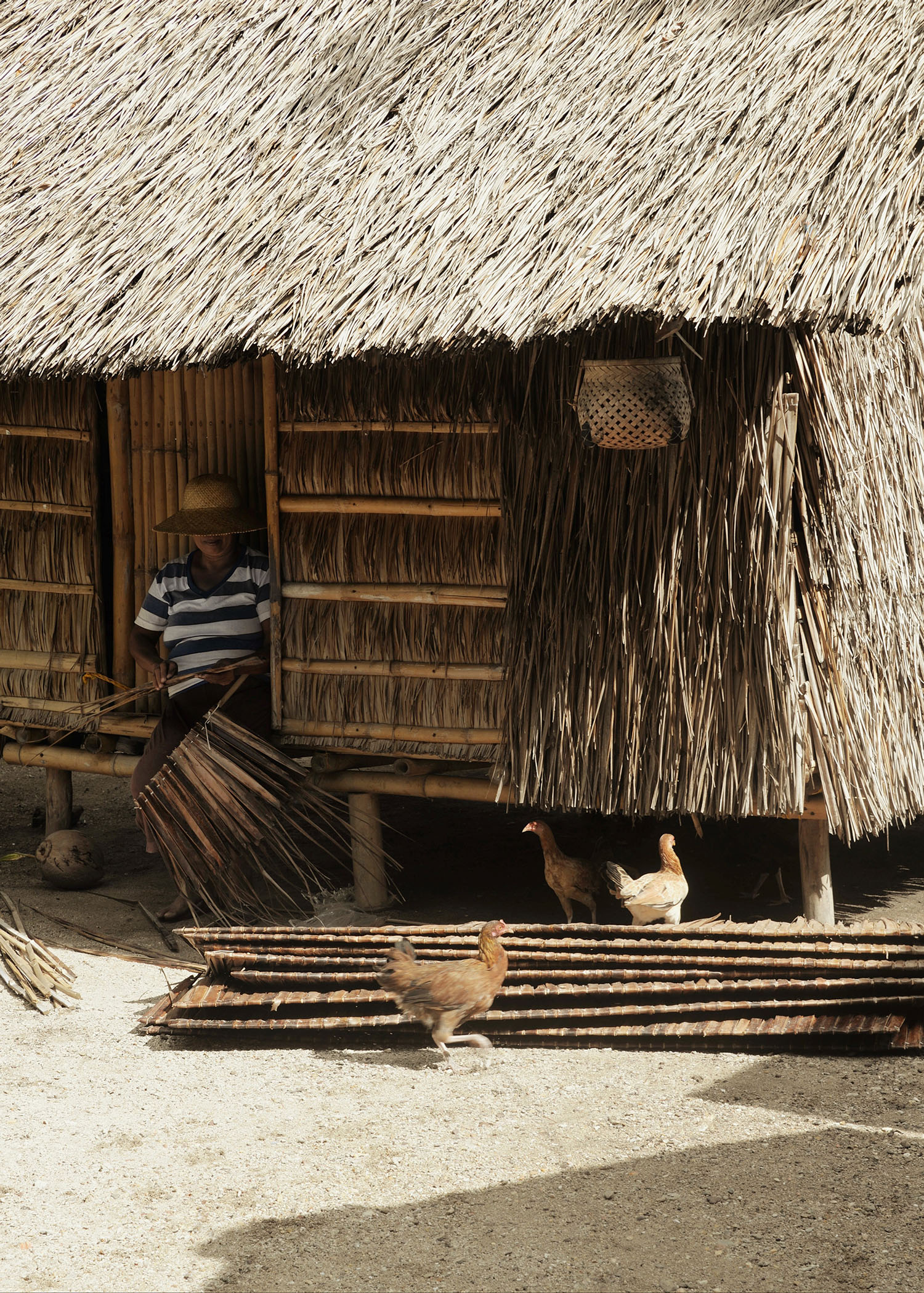
“As an interior designer, it’s important to preserve tradition and highlight objects that are made by someone’s hands, as they age through time,” she muses. “To respect one’s artistry and create a space for it to be shared and appreciated by others. I think we’re doing just that with Unna.”
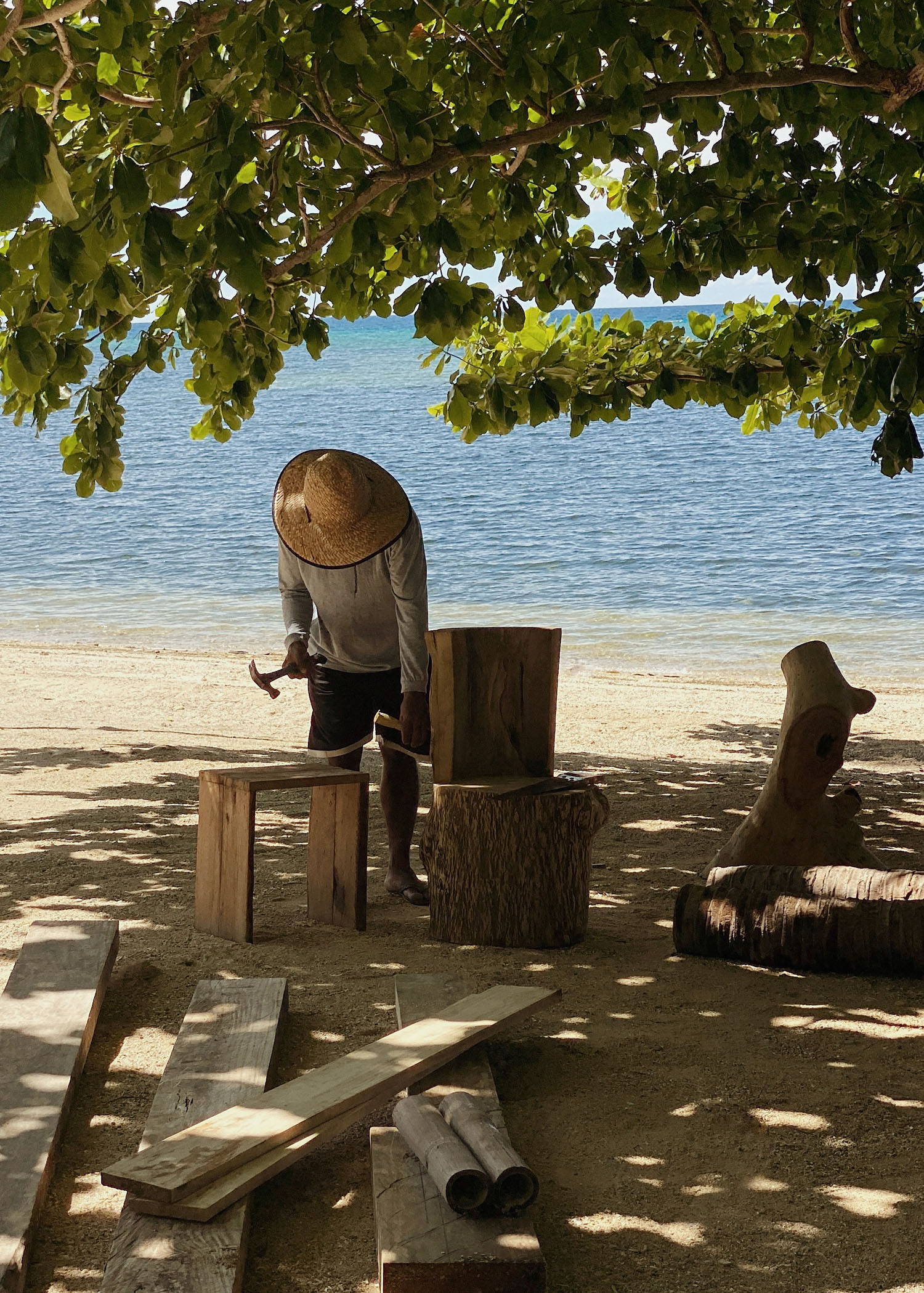
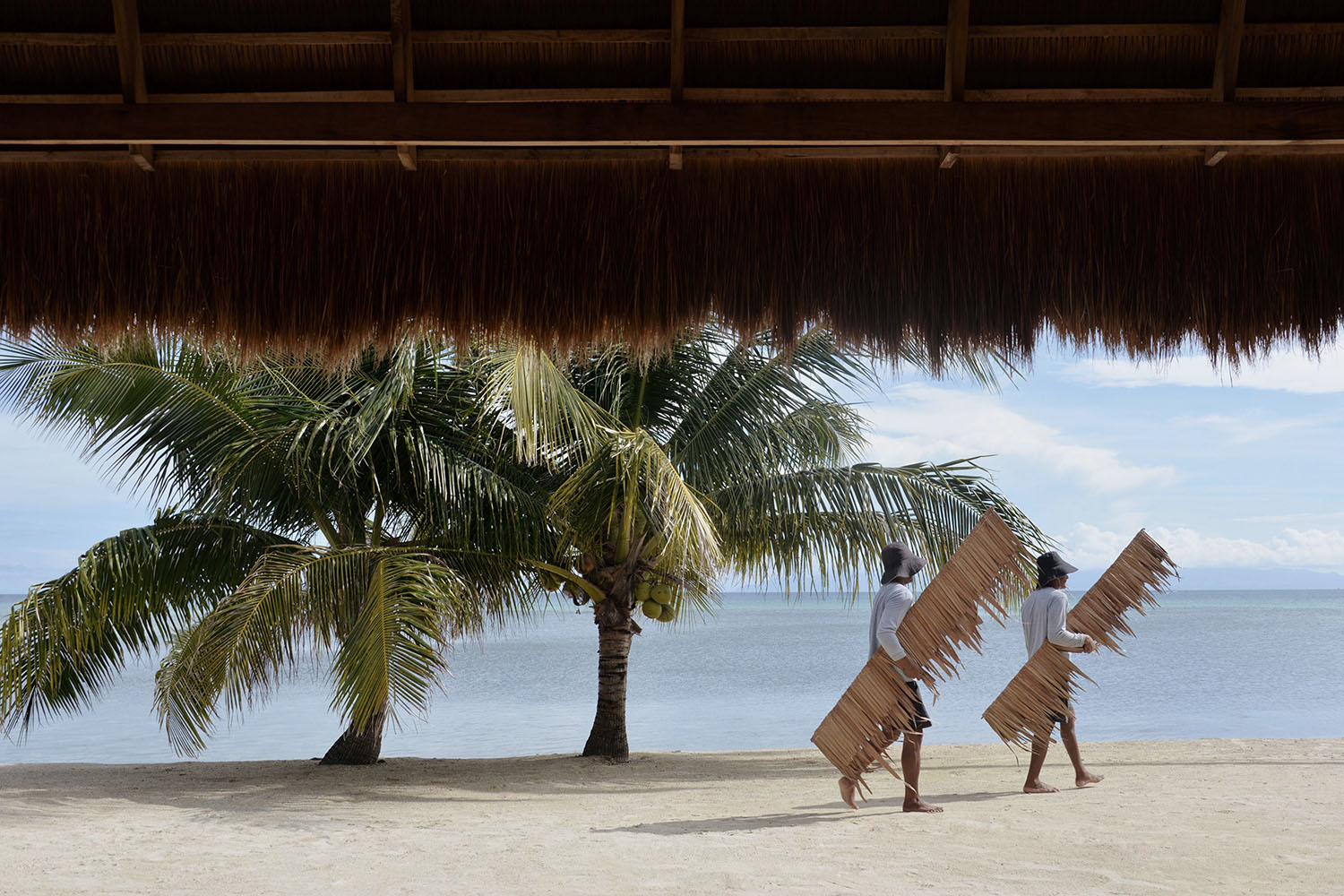
Photography by Vianca Soleil Roquero
Read more features here.
The Latest
Textures That Transform
Aura Living’s AW24 collection showcases the elegance of contrast and harmony
Form Meets Function
Laufen prioritises design, functionality and sustainability in its latest collections
Preserving Culture, Inspiring Creativity
Discover the Legacy of a Saudi Art Space: Prince Faisal bin Fahd Arts Hall explores the Hall’s enduring influence on the cultural fabric of Saudi Arabia
Channelling the Dada Spirit
Free-spirited and creative, The Home Hotel in Zurich injects a sense of whimsy into a former paper factory
id Most Wanted- January 2025
Falaj Collection by Aljoud Lootah Design
Things to Covet in January
identity selects warm-toned furniture pieces and objets that align with Pantone’s colour of the year
Shaping the Future of Workspaces by MillerKnoll
Stacy Stewart, Regional Director Middle East & Africa of MillerKnoll discusses the future and evolution of design in workspaces with identity.
Shaping Urban Transformation
Gensler’s Design Forecast Report 2025 identifies the top global design trends that will impact the real estate and built environment this year
Unveiling Attainable Luxury
Kamdar Developments has launched 105 Residences, a new high-end development in Jumeirah Village Circle.
The Muse
Located in the heart of Jumeirah Garden City, formerly known as ‘New Satwa’, The Muse adds to the urban fabric of the area
Cultural Immersion Meets Refined Luxury
The Chedi Hegra opens its doors in AlUla’s UNESCO World Heritage Site
Redefining Coastal Luxury
Sunshine Bay on Al Marjan island combines seaside views, exceptional design, and world-class amenities to create a unique waterfront haven


